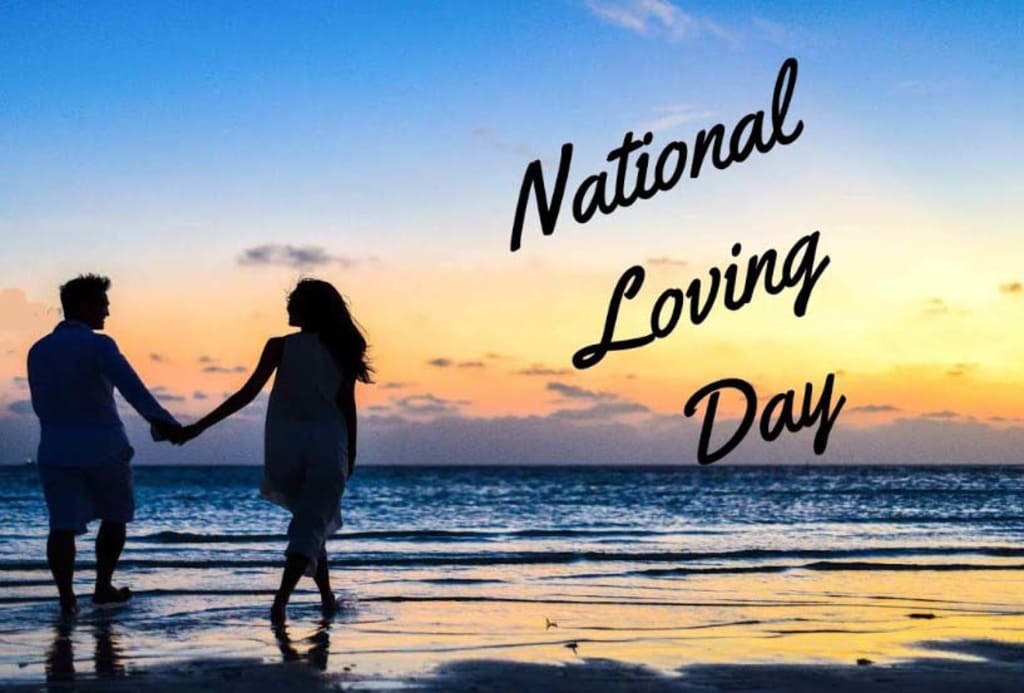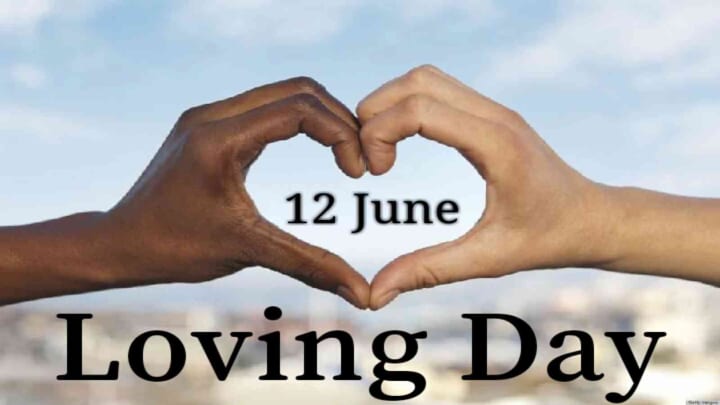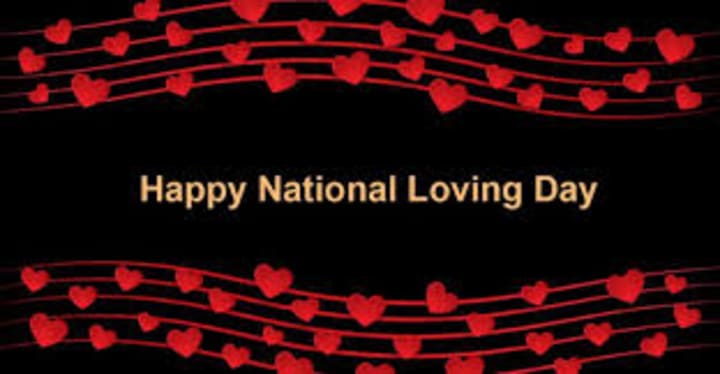Honoring Interracial Relationships: National Loving Day 2023
National Loving Day is a celebration of love and a reminder of the ongoing struggle for equality and acceptance. Observed annually on June 12th, National Loving Day commemorates the landmark 1967 Supreme Court decision in Loving v. Virginia that struck down state laws banning interracial marriage. This day serves as a time to reflect on the progress made towards acceptance and inclusivity in society, as well as the challenges that remain. In this article, we will explore the history and significance of National Loving Day, its impact on society, and ways to continue promoting love and acceptance beyond this annual observance.

National Loving Day 2023:
National Loving Day is a celebration of love and a reminder of the ongoing struggle for equality and acceptance. Observed annually on June 12th, National Loving Day commemorates the landmark 1967 Supreme Court decision in Loving v. Virginia that struck down state laws banning interracial marriage.
This day serves as a time to reflect on the progress made towards acceptance and inclusivity in society, as well as the challenges that remain.
In this article, we will explore the history and significance of National Loving Day, its impact on society, and ways to continue promoting love and acceptance beyond this annual observance.
Introduction to National Loving Day:

National Loving Day is a holiday celebrated in the United States on June 12th every year. It is a day dedicated to celebrating love and honoring the legacy of the Loving v. Virginia case, which legalized interracial marriage in the United States. This day is a reminder of the importance of love and acceptance, as well as the progress that has been made towards racial equality.
The history and background of National Loving Day:
National Loving Day was established in 2004 by a graduate student named Ken Tanabe, who wanted to raise awareness about the Loving v. Virginia case. The case involved Mildred and Richard Loving, an interracial couple who were arrested for marrying each other in 1958.
At the time, interracial marriage was illegal in Virginia and the Lovings were forced to leave the state in order to avoid prison time. They eventually fought back against the law and their case made it to the Supreme Court, which ruled in their favor in 1967.
Why National Loving Day is important and relevant today?

National Loving Day is important because it celebrates the triumph of love and acceptance over hate and discrimination. It also serves as a reminder of the progress that has been made in the fight for racial equality.
With continued issues of racism and discrimination today, National Loving Day reminds us that love knows no boundaries and that we should all strive for a more inclusive and accepting society.
Understanding the significance of National Loving Day:

The Loving v. Virginia case and its impact on interracial marriage:
The Loving v. Virginia case was groundbreaking in that it legalized interracial marriage throughout the United States. The case set a precedent for the courts to recognize the right to marry as a fundamental human right that should not be denied based on race. It also paved the way for future civil rights cases and played a significant role in the fight for equal rights.
The importance of celebrating love and diversity:
In a world where hate and intolerance still exist, celebrating love and diversity is more important than ever. National Loving Day reminds us that love transcends race, religion, gender, and sexuality. By celebrating our differences and embracing diversity, we can create a more tolerant and inclusive society.
How National Loving Day is celebrated across the United States?

Stories and examples of National Loving Day celebrations:
National Loving Day is celebrated in various ways across the United States. Some cities hold parades and festivals, while others host seminars and workshops on diversity and inclusion. People also celebrate by sharing their love stories on social media and using the hashtag #NationalLovingDay.
Tips for hosting your own National Loving Day event:
If you want to host your own National Loving Day event, there are many ways to do so. You can start by gathering friends and family for a potluck dinner or picnic, or organize a community discussion on race and love. You can also donate to organizations that promote diversity and inclusion or volunteer at local events that celebrate diversity.
Reflections on the progress made in interracial love and marriage since the Loving v. Virginia case:
The evolution of attitudes towards interracial relationships:
Since the Loving v. Virginia case, attitudes towards interracial relationships have evolved significantly. While there is still work to be done, interracial couples are no longer seen as taboo or controversial in many parts of the country. Interracial relationships and marriages are becoming more common and accepted.
The increase in interracial marriages and families:
There has been a significant increase in the number of interracial marriages and families since the Loving v. Virginia case.
According to the Pew Research Center, the number of interracial marriages has increased fivefold since 1967. Interracial families are also becoming more visible in society and are helping to break down stereotypes and promote acceptance.
Current challenges and obstacles faced by interracial couples:
Interracial relationships have come a long way since the landmark case of Loving v. Virginia in 1967.
However, they still face challenges and obstacles in modern-day society. Discrimination and prejudice against these couples remain pervasive, with many still experiencing racism, sexism, and homophobia.
Examples of discrimination and prejudice faced by interracial couples:
Interracial couples still face discrimination and prejudice in many forms. Some examples include disapproving looks and comments from strangers, racist jokes, rejection from family members, job discrimination, and even violence. These experiences can be stressful and take a toll on couples' mental and emotional well-being.
The intersectionality of racism, sexism, and homophobia in interracial relationships:
Interracial relationships can face multiple forms of discrimination. For example, women of color in relationships with white men may also face sexism and stereotypes that paint them as "exotic" or "hypersexual."
Additionally, interracial LGBTQ couples may face increased homophobia and transphobia. It is important to recognize and address the intersectionality of discrimination in interracial relationships.
The impact of National Loving Day on society and its future implications:
National Loving Day, celebrated every year on June 12th, commemorates the anniversary of the Loving v. Virginia Supreme Court decision that struck down laws banning interracial marriage. The day serves as a reminder of the importance of love and inclusivity.
The role of National Loving Day in promoting love and inclusivity:

National Loving Day is an opportunity to celebrate and promote love between people of different races, cultures, and backgrounds. By recognizing and celebrating the diversity of relationships, we can work towards a more inclusive society that respects and values all types of love.
Potential future developments in interracial relationships and acceptance:
Interracial relationships continue to grow in popularity, with more couples openly expressing their love and building families. As society becomes more diverse and accepting, we can hope to see more progress in the acceptance of interracial relationships, paving the way for a more inclusive and united world.
Ways to continue supporting and promoting interracial love and understanding beyond National Loving Day:

While National Loving Day serves as a powerful reminder of the importance of inclusivity and love, we must continue to support and promote interracial relationships throughout the year.
Actions individuals can take to support interracial relationships:
Individuals can take small steps to support interracial relationships, such as standing up against discrimination, educating themselves and others, and supporting interracial couples in their personal and professional lives.
The importance of ongoing education and dialogue around race and relationships:
Ongoing education and dialogue around race and relationships are critical to promoting understanding and acceptance. By engaging in meaningful conversations and learning about different perspectives, we can work towards a more inclusive and empathetic society.
Conclusion and call to action for a more inclusive and accepting society:
As we celebrate National Loving Day and reflect on the progress we have made, we must also recognize that there is still work to be done. It is up to each of us to promote love and inclusivity in our communities, challenge discrimination and prejudice, and work towards a more accepting and united world.
The continued relevance of National Loving Day and its message:
National Loving Day is a reminder that love knows no boundaries and that diversity should be celebrated and valued. Its message remains relevant today and will continue to be important as we work towards a more inclusive and accepting society.
A call to action to support love and diversity in society:
Let us use National Loving Day as a call to action to support and promote love and diversity in our communities. By working together towards a more accepting and united world, we can ensure that everyone has the right to love and be loved, regardless of race, culture, or background.
Conclusion:
In conclusion, National Loving Day is a powerful reminder of the importance of love and acceptance in all forms of relationships. While progress has been made since the Loving v. Virginia decision, there is still work to be done to combat discrimination and promote inclusivity. Let us take the lessons of National Loving Day and continue to celebrate diversity and strive towards a more equal and accepting society.





Comments
There are no comments for this story
Be the first to respond and start the conversation.